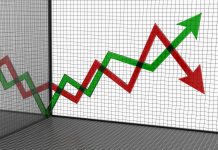
It is August 2020. More than eight months into Covid 19. The virus continues to ask questions; man comes up short most times. A medical solution is still afar. Those who took refuge in their homes, and those who couldn’t afford to, continues to seek ways to adjust to the new reality.
But, while the virus has been an invisible change agent, something else made a not-so-quite entry into our homes. It is called “work from home”. WFH must be among the most used acronyms in the past four months. While corporates have been excited about the lower costs of maintaining office spaces, among many others, employees were also benefitting from flexible timings, lesser commute time, etc. But, whatever may be the advantages, WFH threatens to unseat an important element in the work ecosystem. This is because, the home acts as the recharge point for the employee, where mind and body gets rest and recuperation, and makes him work-ready every morning.
Mummy, what is his name?
But the pitfalls of bringing work to home aside, the indomitable spirit of mankind to hang this all together and make things work, needs to be lauded. There has been numerous incidents of kids or other family members photobombing (or shall we say zoom bombing?) the WFH videoconferences.
This is how theguardian.com reported one such incident.
After more than three months of the pandemic, parents across the country are familiar with the challenges of juggling home working with childcare. But those perils were exposed in epic style when an expert being interviewed on the BBC News channel was interrupted by a young girl waving a picture of a unicorn. Dr. Clare Wenham was being asked about the issue of local lockdowns in England when her daughter Scarlett appeared on screen and started talking to her. The assistant professor of global health policy at the London School of Economics gamely continued talking for more than a minute about the issues of getting access to testing data, while Scarlett continued to try to get her attention, eventually climbing on the desk waving her artwork. Wenham eventually lifted her out of the way and Scarlett walked to the back of the room where she tried to choose the best shelf to display her artwork. Unfazed, the BBC presenter Christian Fraser engaged the little girl in conversation, asked her name, and said: “Scarlett, I think it looks best on the lower shelf … and it’s a lovely unicorn.”
It didn’t end there though. Scarlett was curious to know where the appreciation was coming from and hence asked “Mummy what is his name”, to which Fraser politely obliged by saying “My name is Christian”. Twitter, meanwhile, was highly appreciative of the way each of the three handled the situation. It could have been very different, had Dr. Clare lost her cool, or had Scarlett created a scene, or had the BBC presenter be less humane or acknowledging of the situation.
Indians turn to stocks during WFH
Well, back home, the WFH situation reaped rich dividends for the stock markets. The National Stock Exchange, which was acknowledged as the largest exchange in the world for derivatives, in terms of volume in January 2020, continued to see rising turnover every month since March. Cash market turnover and market capitalization also rose steadily, while the retail participation during this surge became a much storied topic. According to moneycontrol, the non-institutional participation (which includes retail and HNI investors, and excludes institutions like FIIs, DIIs etc.), measured in terms of percentage of total cash turnover, rose from 70.8% in March to 82.8% in June. Some of the reasons for this could be these:
Me Time: Lockdown in the initial stages have been strict, leaving investors practically little else to do, and active stock markets have been a good distraction.
My View: With time came the ability to boost knowledge and do some personal research which may have been quite difficult earlier. And the research also included looking for brokerages, opening trading accounts etc.
Nothing else: With uncertainty high, very few of the alternative investment avenues like land, property, and businesses appeared to be rewarding, and stock market gave an ideal platform to take a view. It is also possible that some of the savings have also been routed to this avenue, given the falling bank interest rates.
Cheap: The panic that peaked during Jan through March, had brought stock markets to its knees, taking prices to a ridiculously low levels. This, supported by the other three factors, gave risk appetite a massive boost.
Confirmation: Now, this sequencing would have been just a still born idea, had a rally not ensued, acting as a confirmation to those doubting investors. In fact, the meteoric rise of stocks day after day, and sector after sector, repeated month after month, gave muscle and structure to the rally, keeping the investors’ interest as robust as it were, ever after 23rd March.
It is highly possible that once a medical solution appears, regular services will resume, taking away at least some of the contributing factors to the recent surge in retail participation. And with it some of the new investors or even some shrewd investors who may no longer have the time or resources. But certainly, a decent portion of the new entrants will stay on, some for the thrill it provides, and some for the investment opportunities they have unearthed during this period. Also supporting this construct is the pace of digitisation that has materialized recently, especially with internet increasingly being acknowledged as the new electricity.
So, for those who might still end up on the trading desk, here are a few thoughts.
Large, but not larger : If you are into a bit of data analysis, then surely you would have already set up a laptop/desktop, table, chair, a good internet etc. and a quite environment to work, assuming you can keep the kids/grand kids at bay. A must-have, if the purse allows, is a pair of large monitors. It would really boost your trading experience to have the trading terminal on one screen and your research or browsers on another that allows you to multi task. You can also connect an extra monitor to your laptop. Screen size should ideally be not more than 23 or 24 inch as it would increase the viewing distance, with chances of pixelating, not to speak of the jump in cost. I have four, but that is for multiple assets and it gets cumbersome at times.
Mobile is for you: If you are not much into doing data or chart analysis on your own and is focussed on speedy and non-fuzzy execution, then lose the laps and desks. Mobile is for you. A significant portion of new investors’ trade purely on mobile alone. And all the research reports are mobile friendly, so you are not losing much on research.
20-20-20 rule: No matter what gizmos you set up, the eyes are still yours, and they need protection from increased screen time. The 20-20-20 rule is for you. Look away at something 20 feet away from you, for 20 seconds, for every 20 minutes that you spend using the screen. You could also position the screen in such a way that light source does not cause a glare, and ensure that the monitor is at or below the eye line.
Spares and more: If you are using blue tooth keyboard and mouse, ensure that you have spare batteries, lest they die on you during crucial times. But just as much as computer peripherals, there are also a few others that you need to keep running and accessible always, to ensure that your day doesn’t go downhill. It may be the extension cords for mobiles that keep your WhatsApp research uninterrupted, or it may be those desktop organizers that prevent all the wires from running amok on your desk. And so on.
Eat at your own peril: Now, having set up a perfect environment to trade the markets, the least you should is to ensure that all of it do not go to waste due to some folly. One such possibility is along a habit that WFH has brought in. Since we are not in the regulated work environment anymore, it is quite natural to have untimely and infrequent nourishments, and have some of them while at your desk. You can’t be too careful while you do that, and the spills can be costly. Least, they can get really irksome, if ants set up a colony under your laptop keyboard to feast on your titbits. I am speaking from my experience. Sigh!
Trading plan vs Plan for the day: The need for a trading plan is much storied. But from a WFH point of view, planning for the day is more important, because the family sees you being available and lines up a lot of chores that you can’t seemingly ignore, and you don’t want to burden the family with your office deadlines anyway. The only way to tread through this mine field is to have a plan for the day, so that just when entry point appeared, you do not have to deal with an angry daughter for not keeping up a promise. Daughters are difficult to mess with, and all I usually end up doing is to hope for market to present another opportunity.
Social Capital: It is the sum total of all the good moments that you have had with your colleagues over years, while at office. The beers you have had, the jokes you have cracked, the fall you have taken etc. And that is what you cash in, for getting jobs done with just a phone call, even though they haven’t seen you in 3 months and have started forgetting your face. Today, with few avenues for socializing with your colleagues, the chances of topping up this capital is limited. But, where you can add credits to, is your home environment which has defacto become an extension to your office, thanks to WFH. It is important to engage meaningfully with family members, to ensure that your plans of the day go smoothly as expected so that they don’t interfere with your trading decisions. And at times, such engagements give you insights that can fortify your trading decisions.
Closing Note: Trading is like teaching cycling to your kid. You know that your kid will do it, though there is little sign of it now. But for the longest time, you can’t seem to convince yourself to let go off the supporting hand from behind, as you can’t bear the kid getting hurt. At the end of the day, the joy is not just about seeing your kid feel the wind on his face on his own, but revisiting that moment when you let go off the supporting hand off the cycle. That is when you assured yourself that, this is the point when you can let go off your fear.
Knowing the risk is half the job. Knowing when to take the risk, and taking it, makes a trader.










Dear Sir
How safe it is in investment of NCD for security and better return
Credit Rating and Type (Secured or Unsecured) of an NCD could give a sense of risk involved at the outset. That said, one should also remember that credit rating does not imply any guarantee of sorts. One should not solely rely on the ratings alone while making a decision to invest. There have been few instances in the past where high rated issues (at offer time) have defaulted on (re)payment subsequently and/or at maturity.